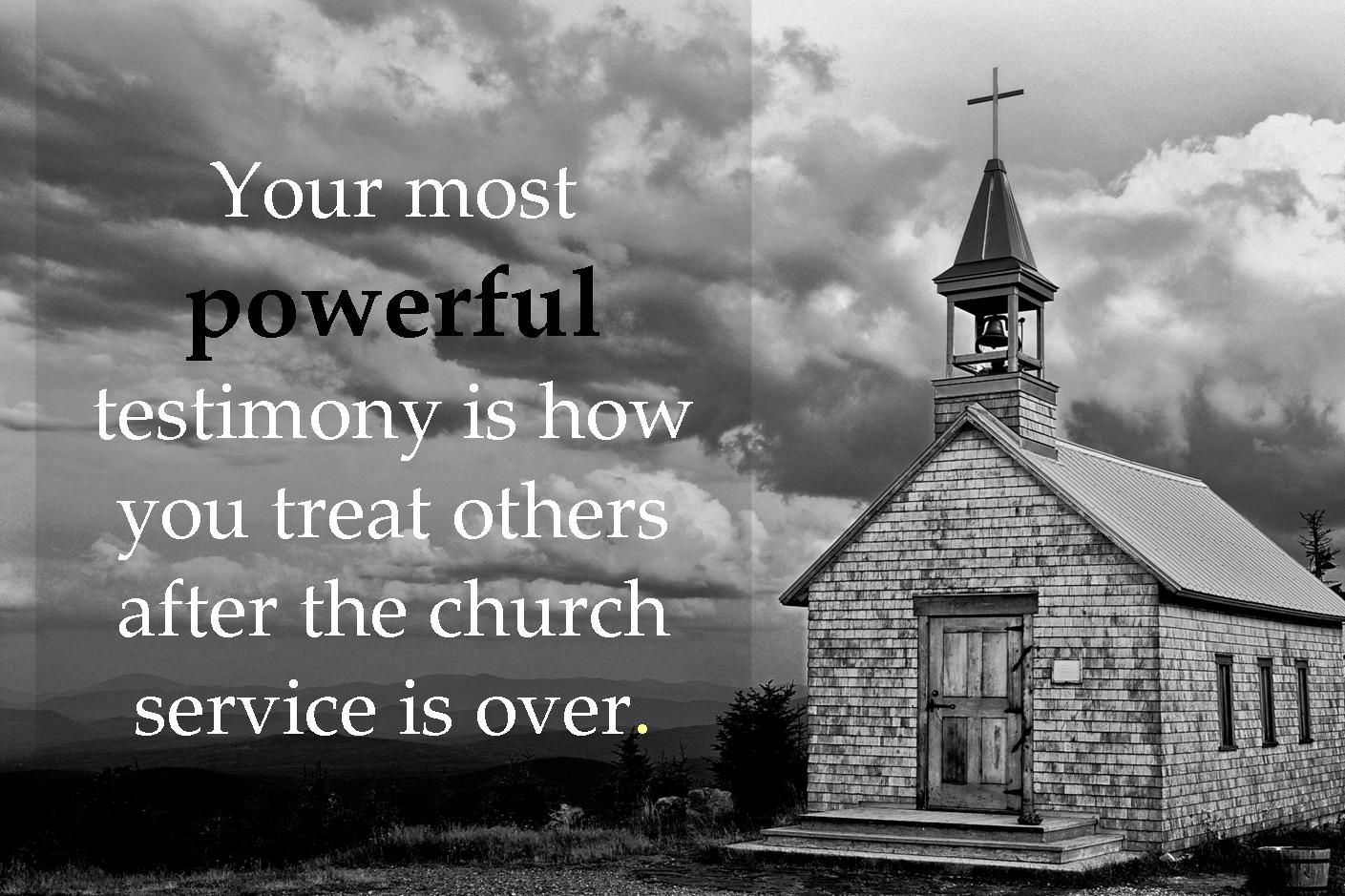
Rev. Dr. I. David Byrd. March 2019
One Minute Summary
“True prayer is not the noisy sound that clamorous lips repeat, but the deep silence of a soul that clasps Jehovah’s feet.” God’s promises are a gift to us paid for in full on the cross by Jesus Christ. Although His promises have been paid for, we still have to talk to Him in prayer. Seeking solitude was an important priority for Jesus. He made room in his busy schedule to be alone with the Father. Spending time with God in prayer nurtures a vital relationship with Him and equips us to meet life’s challenges and struggles. You are coming to your heavenly Father who knows you better than anyone else. Come to Him in intimacy not with your hand out. Don’t allow yourself to try and back Jesus into a corner by saying “you promised”. He has a plan for your life and when it’s time and your request aligns with His will, you will receive what you ask. God will pick up the slack when you choose to worship Him instead of chasing stuff. Not asking for the quick fix to make us feel better, but that His will be done.
March Devotion
Pursuing Critical Conversations with God
Why is it that our prayers only become urgent, fervent, passionate, desperate, and unceasing in the midst of great pain or situation. Is it because a lot of us still don’t understand who Jesus is? If we did, we would be talking to Him a lot more regularly. We may have found ourselves in situations so desperate that we have uttered almost a primal cry to God for help or relief. Then again, we may be people who live by prayer, having plumbed the depths of relationship with God, through the communion of prayer. Jesus told the disciples,
“If anyone does not get his life from Me, he is cut off like a branch and dries up. Such branches are gathered and thrown into the fire and they are burned. 7 If you get your life from Me and My Words live in you, ask whatever you want. It will be done for you”. John 15:6-7 NLV
What does it mean when Jesus says, “If you get your life from me”? Christian theology teaches the doctrine of prevenient grace, which, briefly stated, means that before a man can seek God, God must first have sought the man. Before a sinful man can think a right thought of God, there must have been a work of enlightenment done within him. Imperfect it may be, but a true work nonetheless, and the secret cause of all desiring and seeking and praying that may follow.
“We pursue God because, and only because, He has first put an urge within us that spurs us to the pursuit. “No man can come to me,” said our Lord, “except the Father which hath sent me draw him”(John 6:44), and it is by this prevenient drawing that God takes from us every vestige of credit for the act of coming. The impulse to pursue God originates with God, but the outworking of that impulse is our following hard after Him. All the time we are pursuing Him we are already in His hand: “Thy right hand upholdeth me.” (Psalms 18:35) Come near to the holy men and women of the past and you will soon feel the heat of their desire after God. They mourned for Him, they prayed and wrestled and sought for Him day and night, in season and out, and when they had found Him the finding was all the sweeter for the long seeking. Moses used the fact that he knew God as an argument for knowing Him better. “Now therefore, I pray thee, if I have found grace in thy sight, shew me now thy way, that I may know thee, that I may find grace in thy sight”(Exodus 33:13); and from there he rose to make the daring request, “I beseech thee, shew me thy glory” (33:18). God was frankly pleased by this display of ardor, and the next day called Moses into the mount, and there in solemn procession made all His glory pass before him. Davids life was a torrent of spiritual desire, and his psalms ring with the cry of the seeker and the glad shout of the finder. Paul confessed the mainspring of his life to be his burning desire after Christ. “That I may know him” (Philippians 3:10), was the goal of his heart, and to this, he sacrificed everything. “Yea doubtless, and I count all things but loss for the excellency of the knowledge of Christ Jesus my Lord: for whom I have suffered the loss of all things, and do count them but dung, that I may win Christ” (3:8).”[1]
These three Heroes of Faith, who you read about last month in your study of Hebrews 11, followed hard after God letting the Lord alone be the object of their prayer. Theologian Charles Spurgeon said, “Prayer when rightly performed, all the faculties of the spiritual man are called into devotional action. Reverently hearing the word exercises our humility, instructs our faith, irradiates us with joy, inflames us with love, inspires us with zeal, and lifts us up towards heaven”.[2] So let the Lord alone be the object of your prayer
Spurgeon further taught, “Prayer is the tool of the great potter by which he molds the vessel. All our libraries and studies are mere emptiness compared with our [prayer] closets. We grow, we wax mighty, we prevail in private-prayer. Your prayers will be your ablest assistants while your discourses are yet upon the anvil. How wonderfully were the books opened to Daniel when he was in supplication! How much Peter learned upon the housetop! The closet is the best study. The commentators are good instructors, but the Author himself is far better, and prayer makes a direct appeal to him and enlists him in our cause. Waiting upon God often turns darkness into light. Persevering inquiry at the sacred oracle uplifts the veil and gives the grace to look into the deep things of God. How much of blessing we may have missed through remissness in supplication we can scarcely guess, and none of us can know how poor we are in comparison with what we might have been if we had lived habitually nearer to God in prayer. Vain regrets and surmises are useless, but an earnest determination to amend will be far more useful. We not only ought to pray more, but we must.”
The Protocol of Connecting To God
From the perspective of God’s prophetic plan for history, we can see that God always fulfills His promises for His people. It may not be in our time or in our way, but God always keeps His promises. This should encourage us to pray. You may wonder, “Why pray if God has promised to do it? Won’t it happen anyway?” God’s purposes will happen, but prayer is the protocol of connecting with the spirit of God. Prayer is how you birth your promise.
Those in whom the Holy Spirit dwells will realize his promises. It’s the same spirit that dwelled in the disciples; the same Holy Spirit that dwelled within the Heroes of Faith. Hebrews 11 should have helped you understand that faith was revealed because they believed, conceived, and then received. The disciples understood the power and purpose of prayer. That it would be how they would communicate with Jesus after he ascended into heaven. So they asked him “Lord teach us to pray” (Luke 11:1). Let’s stroll through the Lord’s Prayer, unpacking the structure, meaning, language, and today’s cultural relevance.
He taught them six purposes filled petitions. Notice it begins with worship:
- Praise – “Holy is your name”;
- Priorities – “Thy will be done”;
- Provision – “Give us this day”;
- Pardon – “Forgive us our sins”;
- Protection – “Deliver us from evil”;
- Proclamation – “Yours is the kingdom”.
You should be struck by the fact that He asks us to put the interest of the kingdom before our own. “Thy will be done on earth as it is in heaven.” Let’s park there for a minute and unpack what Jesus was teaching them. Often we ask God to bless OUR kingdom, i.e. to do OUR will. Well, that is not what God is doing. If all you want is another miracle so you can feel better or have more money, that is not kingdom work. We addressed this bad theology last month. That’s not about the kingdom. God is after His kingdom, not after making you and I rich.
“Your kingdom come, your will be done on earth as it is in heaven”. The will of God in heaven is perfect. This world we live in is failed and filled with trouble. The rebellion and revolt of satan caused he and one-third of the angels to be expelled from heaven. This rebellion has spilled over into humanity. Satan got Adam and Eve to think, “did God really say this was wrong”Satin has gotten people, today, to believe in their own truth and treat the Word of God as a smorgasbord of truths from which to pick and choose. We live in a world where individuals think they can be their own authority. Jesus wants us to pray to God for restoration. We should ask Him to fulfill the promises to save, restore, heal and strengthen His people for His glory. Invite Him to make His agenda your agenda. Submit your kingdom to become His kingdom.
The Lord did instruct us to pray for our personal needs (our daily bread), but only after we pray for His name to be hallowed, His kingdom to come, and His will to be done on earth as it is in heaven. When you have come to this reality, you will ask for your provision, not your stuff. You will pray for your need and not your greed. Matthew 6:33 complements this thought, seek Him first, and everything else will be added. Most of the stuff we worry about has no eternal significance anyway. This petition of the Lord’s Prayer, then, teaches us to come to God in a spirit of humble dependence, asking Him to provide what we need and to sustain us from day to day. We are not given license to ask for great riches, but we are encouraged to make our needs known to Him, trusting that He will provide.[3]Too often, our prayers are more like a shopping list than a conversation.
Communicating Best When It Matters Most
Praying in the name of Jesus is powerful because when we pray in His name, we pray with His authority. God promises to answer whatever we ask in His name according to His will. This is why we must know the will of God in order to pray with the authority of Jesus.
Therefore, do not be unwise, but understand what the will of the Lord is.
Ephesians 5:17
This truth is wonderful because we have the assurance that He hears our prayers. Through prayer, in His name, we shall make known among the nations what He has done. Develop the discipline of spending time alone with God. It will help you grow spiritually and become more and more like Christ.
But be careful, we cannot use the concept of the “power of faith” as a means of getting what we want. That would be redefining faith from “a trust in a holy and sovereign God despite our circumstances” to “a way of controlling God to give us what we want.” Faith becomes a force whereby we can get what we want rather than an abiding trust in God even during times of trials and suffering. Remember, His answer could be not now. It may be a test of your faith to draw you closer or to change your perspective. Job who suffered tremendously proclaimed, ”Though He slay me, yet will I trust Him.” (Job 13:15) Can you trust Him when you can’t trace Him?
Praying In The Holy Spirit
Here’s a personal test for you. If you go day-to-day, week-to-week or month to month without bringing up the name of Jesus to anyone then the Holy Spirit is not with you. How can you ask for something from someone you don’t know? God communicates with us through the Holy Spirit, in the form of good thoughts and ideas or peaceful, comforting feelings. When we feel those things, it means God is encouraging us, showing us the truth, and giving us direction.
Everyone will feel the Holy Spirit in their own way. In the Bible, it’s often described as a “still small voice,” (see 1 Kings 19:11–12) that almost seems to whisper to your mind. If your prayer is relational, intimate and personal then like Peter and the disciples on the day of Pentecost, the Holy Spirit will radiate from you.
[14] But Peter, standing up with the eleven, raised his voice and said to them, “Men of Judea and all who dwell in Jerusalem, let this be known to you, and heed my words. [15] “For these are not drunk, as you suppose since it is only the third hour of the day. [16] “But this is what was spoken by the prophet Joel:[17] ‘And it shall come to pass in the last days, says God, That I will pour out of My Spirit on all flesh; . . .
[21] And it shall come to pass that whoever calls on the name of the LORD Shall be saved.’
[33] “Therefore being exalted to the right hand of God, and having received from the Father the promise of the Holy Spirit, He poured out this which you now see and hear. [34] “For David did not ascend into the heavens, but he says himself ‘The LORD said to my Lord, “Sit at My right hand, [35] Till I make Your enemies Your footstool.”’ [37] Now when they heard this, they were cut to the heart, and said to Peter and the rest of the apostles, “Men and brethren, what shall we do?” [38] Then Peter said to them, “Repent, and let every one of you be baptized in the name of Jesus Christ for the remission of sins; and you shall receive the gift of the Holy Spirit. [39] “For the promise is to you and to your children, and to all who are afar off, as many as the Lord our God will call.
Acts 2:14-39 (NKJV)
Have you asked the Holy Spirit to fill and control you today? He will, if that’s your prayer. Next month we will deal with the Holy Spirit to help you understand its role in fulfilling His promise to always be with us.
[1]Excerpts from A.W. Tozer, The Pursuit of God, Moody Publisher, Chicago, 1948
[2]Excerpts from Charles Spurgeon, Lectures To My Students, Volume 1,
[3]R.C. Sproul, What Does “Give Us This Day Our Daily Bread” Mean?, Aug 31, 2016
Dear Heavenly Father, This prayer is a little different.
Normally our idea of prayer is doing all the talking, but friends don’t have conversations like that. There’s give and take, speaking and listening. Therefore, we are going to read, one at a time, each of the things you have promised us. Then we will spend a few minutes listening to hear what you have to say to us about it. We may have questions or comments, but we believe that’s ok because this is meant to be a conversation with you. You said,
- If you’ll give me your whole life, you’ll find the life you’ve always hungered for.
- My purpose in your life is to give you a rich and satisfying life.
- I sacrificed my life for you, and I’ll never stop fighting for you, no matter what.
- I know you, and I’ve given you the ability to know me.
- Wherever I am, I want you to be with me.
- I want to fill you and your life with joy.
Father, we thank you for spending this time with us. These are not the normal prayers we send up to you. We are coming to the understanding that the promise is always preceded by the sacrifice. Change our hearts, change our minds and give us the courage to live a life that is pleasing to you. We trust that you will fulfill our every need and whatever you are giving, we’re taking. If our wants are not of you, we don’t want them. Thank you for these promises for us, Jesus. Amen.
Thank you for allowing me to speak into your life. Hey, spend a few moments of quiet time discovering your application of what you just read by clicking this link myTime with God
Would your connections benefit from this post?












